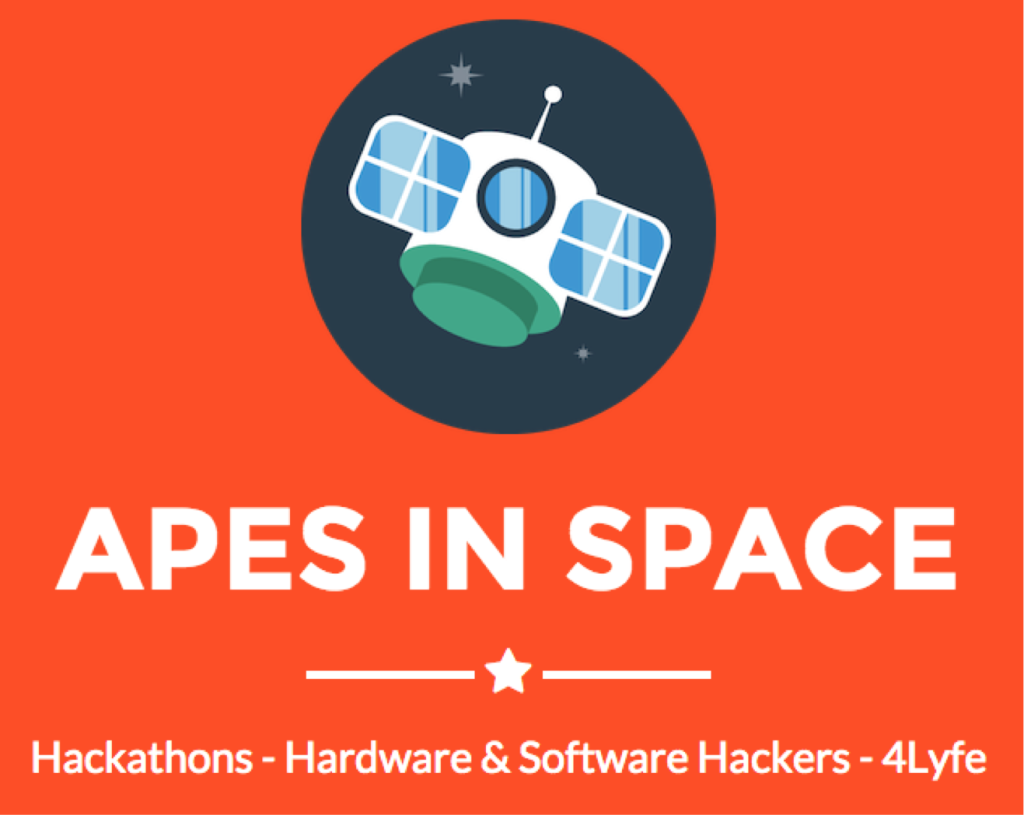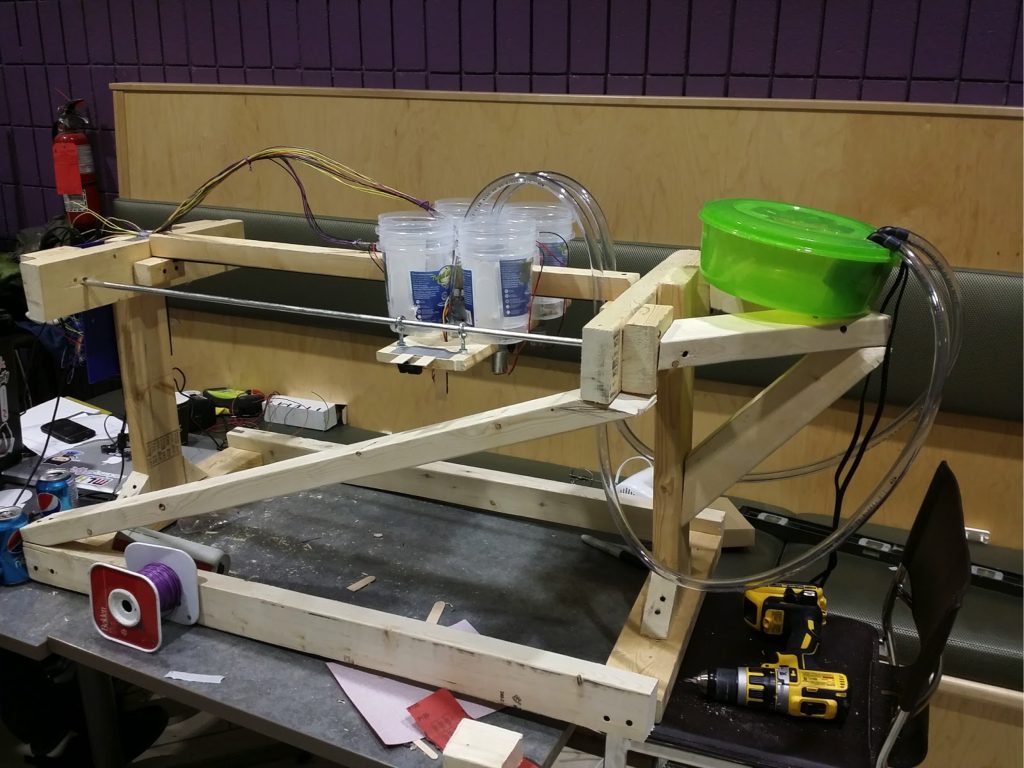Imagine the perfect hackathon team. It’s the day of and you’re giddy with anticipation. Calm and collected, you arrive on time with total focus and absolute conviction that in 36 hours, your demo will make the original iPhone rollout look like Crystal Pepsi. Your team is elite and the division of labor is planned out like a WoW raiding party: one person is dedicated to hardware, another is on front-end, and a third is devoted to building a rock-solid back-end.
It’s unicorn or bust this time, and you know you have a unicorn—it just needs to be assembled…
If that sounds like complete bullshit, it’s because it is. If a winning hackathon team meant a perfect hackathon team, we’d all be pretty screwed.
Meet Apes in Space, a group of hackers from Toronto who build robots that address practical problems. Together, they’ve participated in four hackathons. One of their more notable innovations is an omelette bot built in the span of 36 hours at Hack Western.
Although the robot wasn’t “pumping eggs” as reliably and consistently as the team would have liked, it still made a pretty decent omelet, an impressive feat given that the team has no mechanical engineer.
“Everyone who was there was excited for it—we were getting tweets, we were getting Instagram posts—what I thought was a success was that people kept coming back to see the progress of it,” says team member Michal Wiszniewski.
This year at McHacks, the team took second place with a robot that “revolutionizes the way toast is cooked.” The design was inspired by the simple, but astute observation that toast often burns after the first batch because the toaster is already preheated. The team’s robot calculates the heat energy being injected into the toast by reading the toaster’s surface temperature and adjusting the cook time accordingly. There’s even an app enabling users to toast remotely.
As Apes in Space gear up for Hack the Planet, it’s fair to say the team is running at least as smoothly as one of their robots. While each member has a unique speciality, they keep things fluid and split their efforts based on the situation.
“At this point, we have a good handle on what people’s skillsets are, but depending on the hackathon and the idea, we just allocate resources where they’re needed,” says team member Adam Chan. “We know we’re not going to have any big managerial or organizational problems and we’re not going to screw each other over. Everyone is going to put in their fair share of work.”
It’s worth noting that—strictly speaking—Apes in Space haven’t won a thing, though they place consistently in the top 10. It begs the question: what does winning at a hackathon really mean? Is it taking home an API prize? Landing a job interview?
“If you consider success as winning an award or prize, we did not win anything, but we were able to build a huge robot that was making omelets in under 36 hours,” explains team member Aldrich Wingsion, a fourth year computer science student at the University of Toronto.
If Apes in Space haven’t won anything, what makes them a winning hackathon team? MLH’s stance on prizes is no secret and we all know knowledge is its own reward, but is it also a metric for success?
“For me, the biggest success is just learning to work with something new,” says team member Nikita Tsytsarkin, who emigrated from Russia to Canada this year. “We had to saw wood, put it all together—it probably took us at least 12 hours just to build the mechanical parts and no one had much experience with power tools.”
Apes in Space don’t obsess over first place, or even second and third, but that’s not to say they don’t have lofty aspirations for the future.
“The dream is that we come up with an idea that we all believe in that has huge market potential and could become a startup,” says Chan. That’s our dream goal. Whether we get there or not, we’re all working towards it.”
The team says they have a ton of unused ideas with market potential in the pipeline, and it’s anyone’s guess what they’ll build next. So watch out Cuisinart—Apes in Space might be coming to disrupt your kitchen products. They may even do it next month at Hack the Planet!

